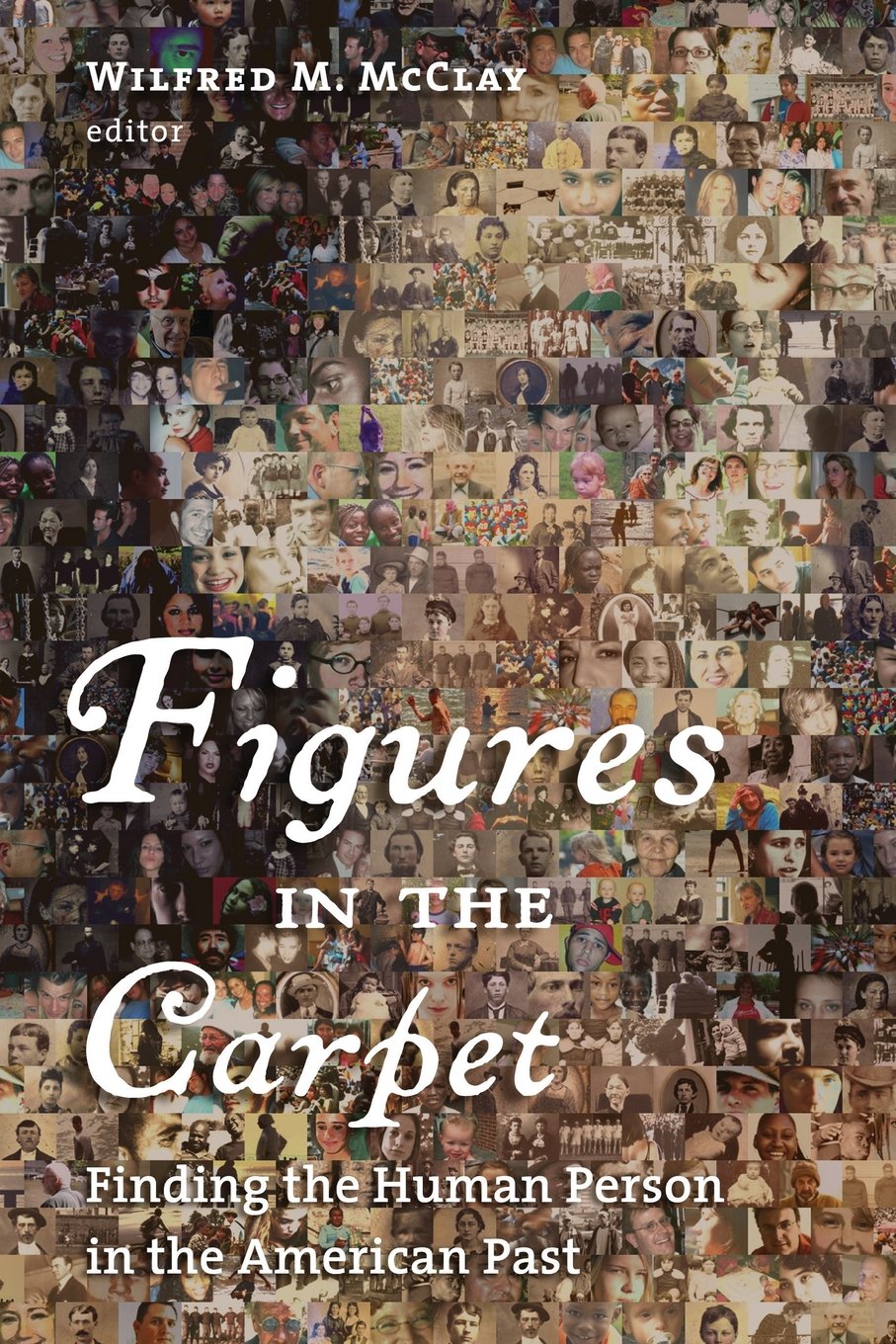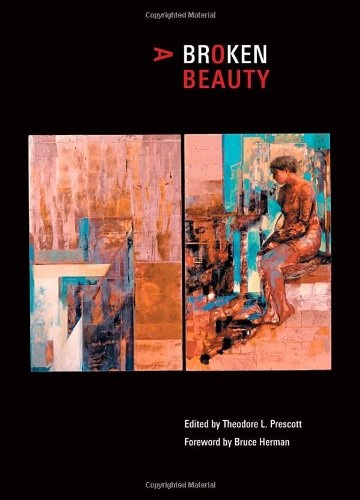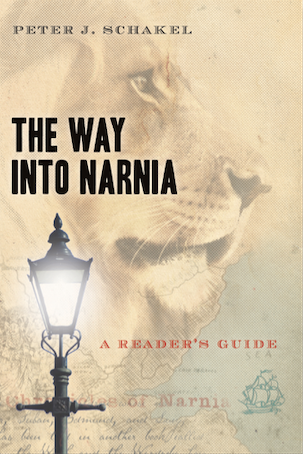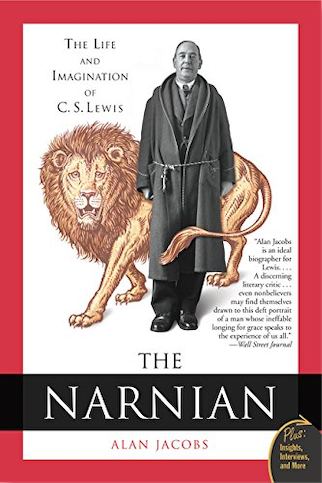PREVIEW
Guests heard on Volume 77

Eric Miller, author of the essay “Pilgrim in an Unknown Land: Christopher Lasch’s Journey,” published in an anthology Wilfred McClay edited, titled Figures in the Carpet: Finding the Human Person in the American Past, on the conserving radicalism and revolutionary traditionalism of Christopher Lasch

Lisa de Boer, author of the essay “A Comic Vision? Northern Renaissance Art and the Human Figure,” in the collection A Broken Beauty, on the depiction of everyday humanity in northern European post-Renaissance painting

Peter J. Schakel, author of The Way into Narnia: A Reader’s Guide on seeing The Chronicles of Narnia as fairy tales, not just Christian allegory

Alan Jacobs, author of The Narnian: The Life and Imagination of C. S. Lewis, on how The Chronicles of Narnia reveal much of C. S. Lewis’s thinking on almost everything, and on how Lewis’s imagination was prepared to write such books (extended interview)
Related reading and listening
- How the Enlightenment blinded us — Alasdair MacIntyre on the dependence of rationality on a lived tradition
- Manners and morals —
FROM VOL. 19 Film and literary critic Alan Jacobs discusses how modern audiences relate to the manners and morals portrayed in Jane Austen films. (16 minutes) - Cultivating the Virtue of Reverence — Paul Woodruff (1943–2023) discusses the importance of reverence as a virtue that enriches relationships, elevates civic life, and helps leaders to wield power wisely. (53 minutes)
- “The Emersonian elixir” —
FROM VOL. 20 Robert Richardson and Roger Lundin discuss how Ralph Waldo Emerson’s legacy lingers in American culture. (18 minutes) - “Detachment as a whole way of life” —
FROM VOL. 85 Professor Christopher Shannon discusses how early twentieth-century social scientists encouraged the American idea that individual identity works against communal membership. (17 minutes) - “Prophet of holiness” — Timothy Larsen discusses a new edition of George MacDonald‘s Diary of An Old Soul, a slim book of poem-prayers to be read daily as a devotional aid. (30 minutes)
- A regard for the whole person —
FROM VOL. 16 Alan Jacobs discusses the clinical stories of neurologist Oliver Sacks, whose ability to bring out the dignity and personhood of his “characters” (patients) rivals that of many novelists. (11 minutes) - Aslan, the Christ-figure of Narnia — Alex Markos explores the transformational power of Aslan as the Christ figure in C. S. Lewis’s Chronicles of Narnia. (31 minutes)
- Immersion in a different time —
FROM VOL. 17 Literary critic Alan Jacobs considers the author Patrick O’Brian as perhaps the best historical novelist ever. (13 minutes) - Recovering the primacy of contemplation — Augusto Del Noce finds in St. Augustine resources to diagnose the fatal flaw in progressivism
- Mars Hill Audio Journal, Volume 162 — FEATURED GUESTS: Mark Noll, R. Jared Staudt, Paul Weston, William C. Hackett, Hans Boersma, and David Paul Baird
- Early evangelical response to C. S. Lewis — Historian Mark Noll discusses the reasons why American evangelicals were initially slow to warm to Lewis. (15 minutes)
- “A state of divine carelessness” —
FROM VOL. 121 Daniel Gabelman attempts to correct the notion that George MacDonald prizes seriousness and sobriety. (20 minutes) - “Reading Lewis with blinders on” — Chris Armstrong explains how C. S. Lewis’s work is grounded deeply in the Christian humanist tradition. (45 minutes)
- On The Abolition of Man —
FROM VOL. 154 Michael Ward explains why The Abolition of Man is one of Lewis’s most important but also most difficult books. (36 minutes) - Seeking control, in white magic and The Green Book — Alan Jacobs on C. S. Lewis’s critique of the modern pursuit of god-like control
- Education, reason, and the Good — Justin Buckley Dyer and Micah J. Watson on C. S. Lewis’s argument about natural law
- Orienting reason and passions — In an essay titled “The Abolition of Mania” (Modern Age, Spring 2022), Michael Ward applies C. S. Lewis’s insights to the polarization that afflicts modern societies. (16 minutes)
- Life without limits? — Robert Westbook on Christopher Lasch’s critique of the modern rejection of limits
- Infrastructures of addiction — Christopher Lasch on the subversive effects of the expectation of novelty
- The past as presence, not souvenir — Historian Christopher Lasch on the importance of recognizing our dependence on the past
- A prophetic pilgrim — Historian Eric Miller charts Christopher Lasch’s intellectual journey in search of a vision that could direct Americans toward the higher hopes and nobler purposes that might lead to a flourishing common life. (57 minutes)
- “How deep the problems go” —
FROM VOL. 103 Eric Miller discusses the late historian and social critic Christopher Lasch’s intense commitment to understand the logic of American cultural confusion. (20 minutes) - Miller, Eric — FROM THE GUEST PAGE: Eric Miller is Professor of History and the Humanities at Geneva College, in Beaver Falls, PA, where he directs the college’s honors program.
- Rejecting “two-tiered” Thomism —
FROM VOL. 155 David Bentley Hart on how “two-tier Thomism” deviates from historic Christian understanding of the relationship between God and Creation. (42 minutes) - Jacobs, Alan — FROM THE GUEST PAGE: Alan Jacobs is Distinguished Professor of Humanities in the Honors Program at Baylor University and a Senior Fellow of the Institute for Advanced Studies in Culture.
- Bridges with structural flaws —
FROM VOL. 4 What made The Bridges of Madison County so popular, and so flawed? Alan Jacobs offers some insights. (14 minutes) - An unlikely trio in life (and in death) —
FROM VOL. 1 Philosopher Peter Kreeft was interviewed in 1982 by Ken Myers about his book, Between Heaven and Hell. In 1992, that interview was featured on the pilot cassette tape which became the Mars Hill Tapes. (10 minutes) - Welcoming one another — Christine Pohl describes the practice of hospitality in Church history and the particular challenges to hospitality we face in our era. (30 minutes)
- Faulkner’s tragic vision — Alan Jacobs describes how William Faulkner’s fiction explored the tragedy of living with a legacy of evil acts. (26 minutes)
- Mars Hill Audio Journal, Volume 155 — FEATURED GUESTS: Donald Kraybill, Thaddeus Kozinski, David Bentley Hart, Nigel Biggar, Ravi Scott Jain, and Jason Baxter
- The Narnian as Jeremiah — Michael Ward on the bleak prognosis in C. S. Lewis’s The Abolition of Man
- Mars Hill Audio Journal, Volume 154 — FEATURED GUESTS: Felicia Wu Song, Michael Ward, Norman Wirzba, Carl Trueman, D. C. Schindler, and Kerry McCarthy
- Mars Hill Audio Journal, Volume 153 — FEATURED GUESTS: Charles C. Camosy, O. Carter Snead, Matt Feeney, Margarita A. Mooney, Louis Markos, and Alan Jacobs
- MYST and mythic guests — Game designers Rand and Robyn Miller explain how their game’s creation was influenced by their love for the fantasy of J. R. R. Tolkien and C. S. Lewis. (13 minutes)
- Sneaking past watchful dragons — Junius Johnson describes how Hans Urs von Balthasar’s understanding of Creation resonates with that of C. S. Lewis and Bonaventure, all three of whom served as mentors in his thinking about beauty. (18 minutes)
- On faithful fiction: Larry Woiwode, Alan Jacobs, & Jay Tolson — This Friday Feature represents three interviews on fiction from Volume 3: Larry Woiwode on what makes good fiction, Alan Jacobs on P. D. James’s The Children of Men, and Jay Tolson on Walker Percy. (29 minutes)
- Becoming a serious and receptive reader — David Lyle Jeffrey offers a thoughtful reading of C. S. Lewis’s account of thoughtful reading
- Walter Hooper, R.I.P., and Christina Rossetti’s Advent poems — Walter Hooper (1931-2020) describes his first meeting with C. S. Lewis, a man he so admired and long served. In a second chapter in today’s Feature, Emma Mason explains how Christina Rossetti’s hopeful eschatological beliefs influenced the poems she wrote about the season of Advent. (21 minutes)
- Erotic love (allegedly) conquers all — C. S. Lewis on why the “right to sexual happiness” makes totalitarian demands
- The correspondence between Lewis and Sayers — Gina Dalfonzo chronicles the encouragement and occasional spats documented in letters between C. S. Lewis and Dorothy Sayers, two very different but nonetheless mutually sympathetic Christians. (24 minutes)
- Thomas Howard, R.I.P. — Thomas Howard encouraged in many students and readers an imaginative appropriation of faith and truth. This interview — released at the time of his death in 2020 — includes his discussion of C. S. Lewis’s Till We Have Faces. (55 minutes)
- The sins of the fathers . . . and ours — Eighty years ago, C. S. Lewis warned against surrogate contrition
- Christina Rossetti and George MacDonald revisited — Alan Jacobs talks about the theme of renunciation in Christina Rossetti’s poems, and Stephen Prickett looks at aspects of nineteenth-century Romanticism from which George MacDonald’s work emerges. (33 minutes)
- Forgotten lessons from Christopher Lasch — Ken Myers reads an editorial that Jason Peters wrote to introduce Local Culture magazine’s exploration of historian and social critic Christopher Lasch’s thought. (31 minutes)
- Spirits in Bondage: Lewis’s early poetry — Karen Swallow Prior and Don W. King discuss C. S. Lewis’s early poetry and the evidence therein of a “frustrated dualism.” (23 minutes)
- The Liberal Arts tradition, II — context and extension — Kevin Clark explains how the book he co-authored defines a framework in which the Trivium and the Quadrivium are the core of a curriculum that includes piety, gymnastics, music, philosophy, and theology. (20 minutes)
- Mars Hill Audio Journal, Volume 146 — FEATURED GUESTS: Mark Mitchell, Hans Boersma, Henry T. Edmondson, III, Brian Clayton, Douglas Kries, Conor Sweeney, and Carole Vanderhoof
- The Liberal Arts tradition, I — science and harmony — Ravi Scott Jain discusses the place of the Quadrivium — the four mathematical arts — within the larger framework of the classical approach to education. (21 minutes)
- Three books by Peter Kreeft — In excerpts from three interviews, Peter Kreeft discusses our “brave new world”; the importance of integrity in “creed, code, and cult”; and the reality of transcendence in our human story. (36 minutes)